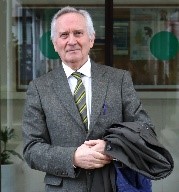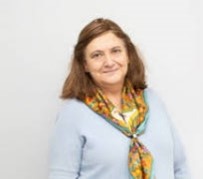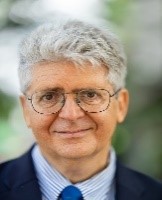(OPEN)Call for proposals for a new monograph: Higher education, community and service-learning
Deadline for submission: 30th June 2025
Guest EditorsMiguel A. Santos Rego – University of Santiago de Compostela (Spain)
Marta Ruiz-Corbella – Universidad Nacional de Educación a Distancia (Spain)
Fernando Reimers – Harvard University (USA)
The greatest challenge facing the world today and in the future is to activate patterns of responsible development in support of preserving and/or promoting a dignified and healthy life in the different latitudes of the globe. The aim is, among others, to create a shared pathway for generating commitments in the social and community fabric, including and strengthening civic and ethical dimensions in the teaching and learning processes of young people who are the leading players in higher education systems in the current complex situation, from both a national and international point of view.This monograph aims to address issues related to the theory and practice of social responsibility in higher education, with an emphasis on pedagogical innovations and formats in line with the principles of equity and quality in higher education institutions, such as service-learning, project-based learning, challengebased learning, community-based research, among others.
In this line of work, the main focus of this monograph is the analysis of the role and impact of the community in any innovative teaching proposal. Paying attention to the social actors, who are seen as the receiving community for which these projects are intended and in which they participate in various ways. We should also determine how the idea of 'community' is understood in the academic setting, those social actors that we address and with whom we must count on in the design, development and evaluation of each proposal, who must be aware of their shared responsibility for the training processes in which they participate. In other words, how the social actors are being integrated into our designs, their level of participation or how the impact on them is being evaluated,and at the same time, as a university, to determine whether or not we are meeting their demands, interests or needs. That is, to determine whether the university truly demonstrates a transformative capacity that enhances the convergence and participation of all the actors and agents of the territory, aiming to build an educational environment for all, cooperating in the development of the community and, therefore, of society.
The research carried out so far has focused on the social actors that participate in these designs that are addressed with and for the community, referring to the third sector, to educational, social, recreational, sports, political, and religious entities, among others. But, are these the communities our teaching innovation projects aim at? How do we define ‘community’? What are the features that identify and differentiate them from other groups? By referring to ‘community’, do we mean society? The concept of 'community' is undoubtedly complex and must necessarily be approached from a transdisciplinary perspective. If we identify and define this concept, we will be able to analyze it during the implementation of projects, such as those based on the service-learning methodology. This leads to the visibility of the social responsibility of the educational proposals of our universities, which are not limited to evaluating the knowledge acquired by their students, but must also analyze and assess the impact achieved by the service. That is to say, to offer a service that addresses a community, not as something external given by some agents that intervene in this context, but making the community participate and co-responsible in the design, implementation and evaluation of the project, with the aim of responding to their needs, interests, problems... A service focused on achieving an improvement both for the students and the educational institution itself as well as for the community. The list of works in this monograph will enable a broader viewpoint to be considered in the decision-making required by strategic policies in higher education that focus on a rather tight relationship and collaboration with the environment - more or less close -, to reach the greatest possible consensus.
DescriptorsThe papers presented respond to the following lines of inquiry:
- Social responsibility and higher education.
- Higher education and the formation of a new citizenship.
- The 2030 Agenda and higher education. Community and sustainable development.
- Service-learning and social responsibility in higher education
- The community's role in service-learning projects.
- From the social actors to the community.
- Assessment of the impact of service-learning projects on the community
- Cultural diversity and community development in higher education.
- Higher education and social innovation.
Questions
Some guiding questions on the topics of interest in the monograph:
- Is the university responding to the needs of preparing the student body for the demands of forming a democratic and pluralistic citizenship?
- Does incorporating the service-learning methodology in higher education institutions revitalize the social responsibility of our universities?
- What are the community's roles in service-learning projects?
- How is 'community' defined in service-learning projects? What are its features? Can we identify the community with social actors?
- How do we assess the impact of service learning projects on the community? Who are the participants in this evaluation? What instruments do they employ?
- What service-learning educational experiences emphasize the community's role? Do they succeed in creating educational environments?
- How does the university contribute to social innovation? Are we preparing our students for it?
- What are the challenges in incorporating the 2030 Agenda into higher education?
Guest editors
 Miguel A. Santos Rego. University Professor in the Faculty of Education Sciences, Universidad de Santiago de Compostela (USC), where he has been Vice-Rector for Teaching Staff and Director of the Institute of Education Sciences (ICE). Coordinator of the ESCULCA Research Group (Competitive Reference Group of the Galician University System), of the RIES Network at Autonomous Community level, and of a Network of Excellence (UNIASC) of the Ministry of Education made up of eight Spanish universities. Author of twenty-five books and more than one hundred and eighty articles in high impact journals. Visiting Professor at several universities in Europe and America (University of Illinois and Johns Hopkins University, among others). Director of 24 doctoral theses. He has been awarded the National Prize for Educational Research by the Spanish Government. Currently, he is Director of the Department of Pedagogy and Didactics at the USC and President of the Galician Commission of Reports, Evaluation, Certification and Accreditation (CGIACA-ACSUG). He has been awarded six six-year research periods by the National Commission for the Evaluation of Research Activity (CNEAI). Its priority lines of research are: educational success, intercultural pedagogy, theory of educational processes, cooperative learning, funds of knowledge, and service-learning in higher education.
Miguel A. Santos Rego. University Professor in the Faculty of Education Sciences, Universidad de Santiago de Compostela (USC), where he has been Vice-Rector for Teaching Staff and Director of the Institute of Education Sciences (ICE). Coordinator of the ESCULCA Research Group (Competitive Reference Group of the Galician University System), of the RIES Network at Autonomous Community level, and of a Network of Excellence (UNIASC) of the Ministry of Education made up of eight Spanish universities. Author of twenty-five books and more than one hundred and eighty articles in high impact journals. Visiting Professor at several universities in Europe and America (University of Illinois and Johns Hopkins University, among others). Director of 24 doctoral theses. He has been awarded the National Prize for Educational Research by the Spanish Government. Currently, he is Director of the Department of Pedagogy and Didactics at the USC and President of the Galician Commission of Reports, Evaluation, Certification and Accreditation (CGIACA-ACSUG). He has been awarded six six-year research periods by the National Commission for the Evaluation of Research Activity (CNEAI). Its priority lines of research are: educational success, intercultural pedagogy, theory of educational processes, cooperative learning, funds of knowledge, and service-learning in higher education.
 Marta Ruiz-Corbella. Associate Professor of Theory of Education at the Universidad Nacional de Educación a Distancia (Spain). Member of the On-site and Distance Higher Education (ESPYD) Research Group and of the Teaching Innovation Group for the Development of Ethical and Civic Competence and Community-Based Methodologies (APS-CBR) in Higher Education - COETIC (GID 2016-43).
Marta Ruiz-Corbella. Associate Professor of Theory of Education at the Universidad Nacional de Educación a Distancia (Spain). Member of the On-site and Distance Higher Education (ESPYD) Research Group and of the Teaching Innovation Group for the Development of Ethical and Civic Competence and Community-Based Methodologies (APS-CBR) in Higher Education - COETIC (GID 2016-43).
Her lines of research have focused, as a priority, around two topics: The first of them, as a result of her work as Vice-Dean and Head of Department, has focused on higher education, bringing together the descriptors of moral education and political education with higher education, with special emphasis on virtual institutions. Her research lines have focused on the transformation that the university is undergoing, its mission, the organisational and methodological changes that are derived from it, together with the social responsibility of this institution approached from its ethical and civic perspective. In this last line, she incorporates the methodology of servicelearning in university institutions, while at the same time deepening and reflecting on its theoretical foundations. She has published more than sixty contributions on these topics, has coordinated five monographs in scientific journals and three monographs. She has participated in more than forty-five national and international conferences and, linked to this area, she has coordinated and/or participated in seventeen teaching innovation projects linked to the subjects she teaches.
The second line of research revolves around scientific journals in education, derived from her management as editor from 2004 to 2021 of Educación XX1, Revista de la Facultad de Educación. This publication is indexed in SSCI (WoS) and ranked in quartile 1 of the JCR (2023) and Citescore (2023) of Scopus. On this topic, she has published six scientific articles with the aim of advancing the consolidation of scientific journals in education, identifying good practices and addressing new metrics. Since 2015, she has been editor of the blog Aula Magna 2.0, which focuses on the dissemination of scientific journals in education and, in particular, on reflection and debate on practices in the dissemination of research results and the evolution of these publications.
She has given seminars, conferences and training workshops on these two areas, and recorded radio and television programmes.
 Fernando M. Reimers. Director of the Master's Program in International Education Policy and the Global Education Innovation Initiative at Harvard University (USA). Ford Foundation Professor for the Practice of International Education. Elected member of the U.S. National Academy of Education and the International Academy of Education, as well as a member of the Council on Foreign Relations. He was a member of UNESCO's Commission on the Futures of Education. His current work focuses on educational innovation and the impact of educational policy, curriculum, leadership, and teacher professional development on education, which supports the holistic development of children and youth. He leads the Global Education Innovation Initiative, a crosscountry research collaboration and practice focused on education for the 21st century. Out of his numerous publications, we mention a recent special issue focused on the relationship between education and the challenges facing democracies worldwide, with contributions from members of the International Academy of Education: “Education and the challenges for democracy” (Education Policy Analysis Archives, 2023). He is a member of several boards and advisory committees at Harvard, mainly focused on promoting the University's global mission and efforts to address climate change. Prior to joining Harvard University, he taught at the Universidad Central de Venezuela, was a policy fellow at the Harvard Institute for International Development, and was a senior education specialist at the World Bank. He received an Honorary Doctor of Humane Letters degree from the Emerson College. He also received the Global Citizenship Award from the Committee on Teaching about the United Nations and the Centennial Medal of the International Institute of Education for his work promoting global citizenship education
Fernando M. Reimers. Director of the Master's Program in International Education Policy and the Global Education Innovation Initiative at Harvard University (USA). Ford Foundation Professor for the Practice of International Education. Elected member of the U.S. National Academy of Education and the International Academy of Education, as well as a member of the Council on Foreign Relations. He was a member of UNESCO's Commission on the Futures of Education. His current work focuses on educational innovation and the impact of educational policy, curriculum, leadership, and teacher professional development on education, which supports the holistic development of children and youth. He leads the Global Education Innovation Initiative, a crosscountry research collaboration and practice focused on education for the 21st century. Out of his numerous publications, we mention a recent special issue focused on the relationship between education and the challenges facing democracies worldwide, with contributions from members of the International Academy of Education: “Education and the challenges for democracy” (Education Policy Analysis Archives, 2023). He is a member of several boards and advisory committees at Harvard, mainly focused on promoting the University's global mission and efforts to address climate change. Prior to joining Harvard University, he taught at the Universidad Central de Venezuela, was a policy fellow at the Harvard Institute for International Development, and was a senior education specialist at the World Bank. He received an Honorary Doctor of Humane Letters degree from the Emerson College. He also received the Global Citizenship Award from the Committee on Teaching about the United Nations and the Centennial Medal of the International Institute of Education for his work promoting global citizenship education
Deadline for submission: 30th June 2025
Instructions for the authors: https://bit.ly/4220mej
Submission of proposals for the monograph: http://bit.ly/3Hlou1N









